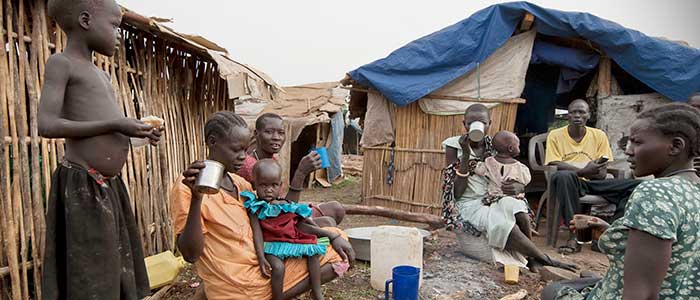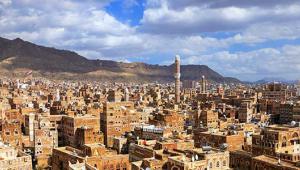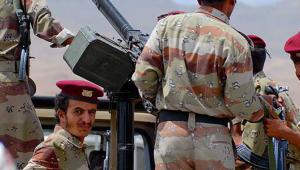Web_SouthSudan_iStock_000061842024_Large.jpg

People in displaced persons camp in Juba, South Sudan
The United Nation’s children agency urgently appealed for $155m to support live-saving interventions like malnutrition treatment, healthcare and clean water for 5 million children in the world’s youngest country.
However, just $27m – 18% of the appeal – had been raised by last Friday, leaving a $128m gap that UNICEF said will mean 3.3 million children cannot be vaccinated against measles, 260,000 conflict-affected children will not be supported to return to school.
Efforts to unite 7,300 separated children with their families will also be halted, and essential nutrition supplies will run out.
Jonathan Veitch, UNICEF representative in South Sudan, said: “This forgotten emergency is threatening the lives of tens of thousands of children.”
“The reality is that without adequate support we simply will not be able to provide the services that are needed to prevent children dying from malnutrition, diarrhoea, malaria and vaccine-preventable diseases.”
UNICEF had planned to treat 166,000 severely malnourished children, educate over half a million, and secure the release and reintegration of 16,000 children believed to be recruited as child soldiers over the course of the year.
After three years of violence, fighting has now also spread into previously peaceful areas in the west of the country, where UNICEF had not planned to work but is now needed.
Aid workers have been rushing to get food to hard to reach and in-need communities before the rainy season begins, cutting off access to them.
UNICEF said that the peak of the lean season in May, when food is scarce, will bring the threat of famine to over 40,000 people in the conflict-affected areas of Unity State.
The agency stressed that nearly 100 partner groups also rely on funding and support from UNICEF and will be forced to scale back their services.
“For the first time since this crisis began, children are being threatened not by a lack of access of capacity, but by a lack of funds,” said Veitch. “Humanitarian aid is now the only thing standing between survival and total destitution for many families.
“Funding is needed now if the youngest members of the world’s youngest nation are to have a future.”
Today UNICEF and the World Food Programme have also called for contributions of at least $21m to support their work in Mauritania, where more than 450,000 people are suffering from food insecurity and funding shortfalls are threatening to force the agencies to scale back their work.
The current lack of financing already means there are no relief activities underway in vulnerable parts of the country.













